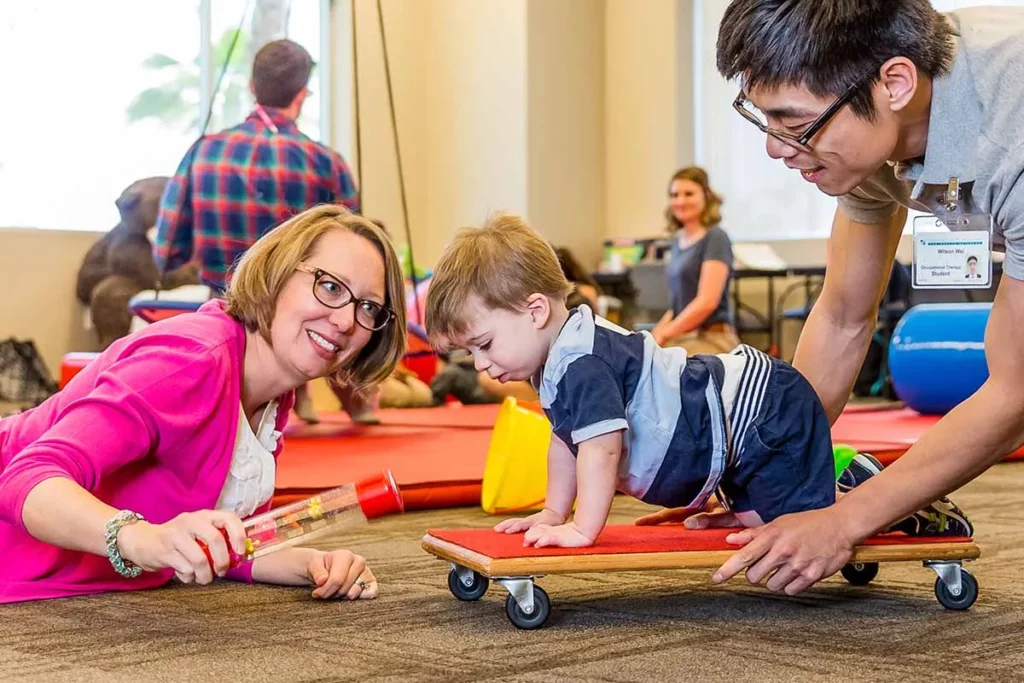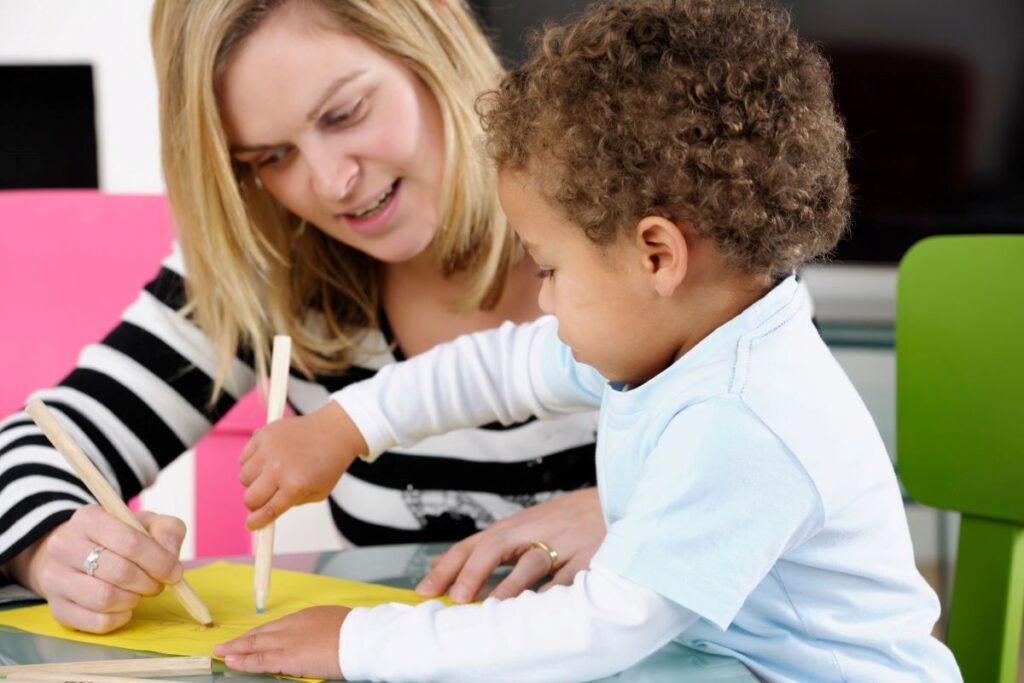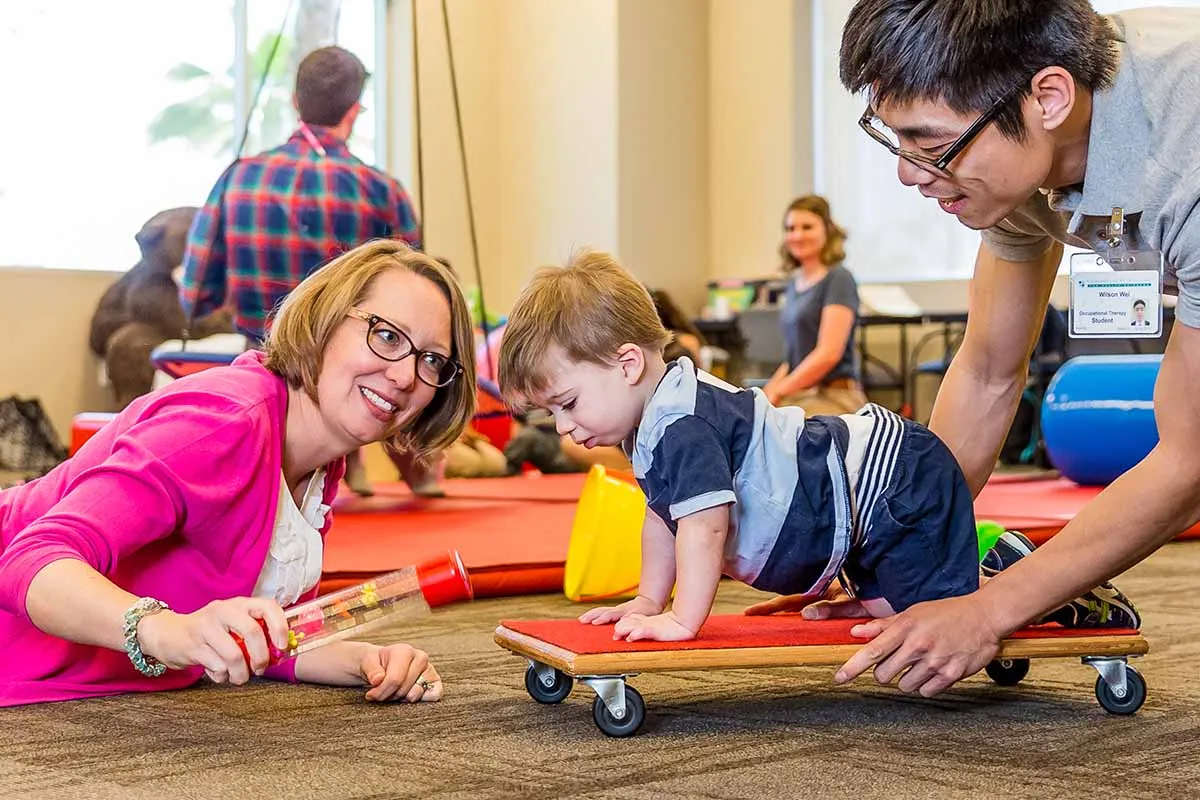Occupational therapy (OT) is a vital service for children facing various challenges that affect their daily lives, learning, and social interactions. In Castle Hill, occupational therapy for kids is designed to enhance their skills and build confidence through tailored interventions. This article delves into the various aspects of occupational therapy, its benefits, and how it fosters growth in children.

Understanding Occupational Therapy for Children
Occupational therapy is a client-centred health profession that focuses on enabling individuals to participate in meaningful activities. For children, this often means helping them develop the skills necessary for daily living, learning, and socialising. In addition to speech therapy sydney, OT for kids services assess each child’s unique needs and create personalised intervention plans that target specific goals.
In Castle Hill, occupational therapy for kids encompasses a range of services, including sensory integration therapy, fine and gross motor skills development, and social skills training. The aim is to provide children with the tools they need to navigate their environments confidently and independently.
The Role of Occupational Therapists
Occupational therapists are trained professionals who specialise in understanding the physical, emotional, and cognitive aspects of a child’s development. They work collaboratively with families, educators, and other healthcare providers to create a holistic approach to therapy.
In Castle Hill, occupational therapists conduct comprehensive assessments to identify areas where a child may struggle. This may include evaluating their motor skills, sensory processing abilities, and social interactions. Based on these assessments, therapists develop targeted interventions that can include play-based activities, therapeutic exercises, and adaptive strategies.
Key Areas of Focus in Occupational Therapy
- Fine Motor Skills: These skills involve the use of small muscles in the hands and fingers, essential for tasks such as writing, buttoning clothes, and using utensils.
- Gross Motor Skills: These skills relate to larger movements involving arms, legs, and the entire body, crucial for activities like running, jumping, and climbing.
- Social Skills: Occupational therapy can help children develop the ability to interact appropriately with peers, understand social cues, and build friendships.
- Sensory Processing: Many children experience difficulties in processing sensory information, which can affect their behaviour and emotional regulation. Therapists use sensory integration techniques to help children manage sensory input effectively.
Building Confidence Through Occupational Therapy
One of the most significant benefits of occupational therapy is its ability to build confidence in children. As they develop new skills and overcome challenges, they gain a sense of accomplishment that boosts their self-esteem.
In Castle Hill, occupational therapists employ various strategies to foster confidence. These may include setting achievable goals, providing positive reinforcement, and creating a supportive environment where children feel safe to explore and learn.
Setting Achievable Goals
Occupational therapists work closely with children and their families to set realistic and achievable goals. These goals are tailored to the child’s individual needs and abilities, ensuring that they are both challenging and attainable. By breaking down larger objectives into smaller, manageable tasks, children can experience success along the way, which reinforces their confidence.
For example, a child who struggles with writing may start by practising letter formation using textured materials, gradually progressing to writing on paper. Each small success builds their confidence and encourages them to tackle more complex tasks.
Positive Reinforcement
Positive reinforcement is a powerful tool used by occupational therapists to encourage children. By celebrating achievements, no matter how small, therapists help children recognise their progress and capabilities. This approach not only boosts confidence but also motivates children to continue working towards their goals.
In Castle Hill, therapists may use a reward system, where children earn tokens or stickers for completing tasks. This tangible recognition of their efforts can significantly enhance their motivation and self-esteem.
Creating a Supportive Environment
Creating a safe and supportive environment is crucial for building confidence in children undergoing occupational therapy. In Castle Hill, therapists strive to establish a space where children feel comfortable expressing themselves and taking risks.
Therapists often incorporate play into their sessions, allowing children to engage in activities they enjoy while simultaneously working on their therapeutic goals. This playful approach not only makes therapy enjoyable but also helps children develop a sense of belonging and acceptance.
Developing Essential Skills for Daily Life
Occupational therapy equips children with essential life skills that are vital for their independence and overall well-being. These skills encompass a wide range of activities, from self-care tasks to academic skills and social interactions.

In Castle Hill, occupational therapists focus on helping children develop the following essential skills:
Self-Care Skills
Self-care skills are fundamental for children’s independence. Occupational therapists work with children to develop abilities such as dressing, grooming, and personal hygiene. By mastering these skills, children gain confidence in their ability to care for themselves.
For instance, a therapist may use visual schedules or step-by-step instructions to teach a child how to brush their teeth or tie their shoelaces. These strategies not only facilitate learning but also empower children to take ownership of their self-care routines.
Academic Skills
Academic skills are crucial for success in school and beyond. Occupational therapists in Castle Hill help children develop skills such as handwriting, organisation, and time management. By addressing any challenges in these areas, therapists enable children to thrive in their educational environments.
For example, a child struggling with handwriting may benefit from exercises that strengthen their hand muscles and improve their grip. Additionally, therapists may provide tools and strategies to help children organise their schoolwork and manage their time effectively.
Social Skills
Social skills are essential for building relationships and navigating social situations. Occupational therapists work with children to enhance their communication skills, understand social cues, and develop empathy. These skills are vital for forming friendships and participating in group activities.
In Castle Hill, therapists may use role-playing scenarios to help children practise social interactions in a safe environment. By providing feedback and guidance, therapists empower children to feel more confident in their social abilities.
Collaboration with Families and Schools
Collaboration is a cornerstone of effective occupational therapy. In Castle Hill, occupational therapists work closely with families and schools to ensure a comprehensive approach to a child’s development. This collaboration enhances the effectiveness of therapy and promotes consistency across different environments.
Involving Families in the Process
Families play a crucial role in a child’s occupational therapy journey. Therapists engage parents and caregivers by providing them with strategies and resources to support their child’s development at home. This involvement not only reinforces the skills learned in therapy but also strengthens the parent-child bond.
For instance, therapists may offer guidance on creating sensory-friendly spaces at home or suggest activities that promote fine motor skills. By equipping families with knowledge and tools, therapists empower them to be active participants in their child’s growth.
Collaboration with Schools
Collaboration with schools is equally important in ensuring that children receive the support they need in their educational settings. Occupational therapists in Castle Hill often liaise with teachers and school staff to share insights and strategies that can be implemented in the classroom.
For example, therapists may recommend modifications to the classroom environment, such as providing alternative seating options or sensory breaks, to accommodate a child’s needs. This collaborative approach ensures that children receive consistent support across all areas of their lives.

Conclusion
Occupational therapy for kids in Castle Hill is a powerful tool for building confidence and essential skills. By focusing on individual needs and fostering a supportive environment, occupational therapists empower children to overcome challenges and thrive in their daily lives. Through collaboration with families and schools, these professionals create a holistic approach that nurtures children’s growth and development.
As children engage in meaningful activities and achieve their goals, they not only build confidence but also develop the skills necessary for a successful and fulfilling life. Occupational therapy is not just about addressing challenges; it is about unlocking potential and helping children shine.
Read more related topics

